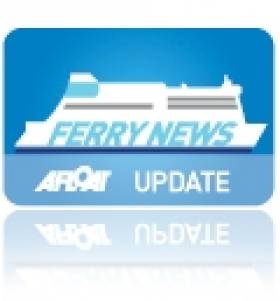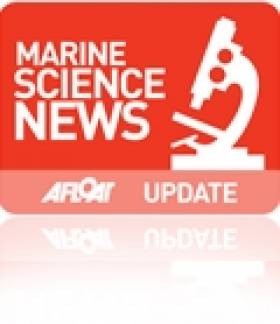Displaying items by tag: G8 summit
Seatruck Ferries Transport ‘Snoozebox’s for G8 Summit
#FerryNews- Seatruck Ferries Heysham-Warrenpoint route had the unusual task of transporting 170 'Snoozebox' cabins to provide temporary accommodation for the 1350 security personnel drafted in for the G8 Summit that took place on the shores of Lough Erne.
Each cabin houses eight individuals in two rooms, each of which has its own bathroom facilities.
The cabins were moved to a strict timeline with Newry based Motis securing the contract for their transportation to site.
Seatruck Commercial Manager in Ireland Damian McGrath commented: "The movement took a great deal of planning not only to meet the requirements of the contract but also to ensure that our regular customers were not disadvantaged by this large movement.
Mr McGrath added "Many of the shipments were undertaken on weekend and off peak sailings where space could be made available more easily. The Warrenpoint route is having a busy year with more and more users switching to the service".
Two freight ferries run the route linking between Co. Down and Cumbria, they are the Seatruck Panorama (2008/14,759grt) and the chartered Anglia Seaways (2000/13,073grt).
Marine Agriculture Could Be Answer To World Hunger Problem
#MarineScience - With world hunger set to be a hot button issue at the G8 summit in Northern Ireland this summer, the Guardian reports on one possible solution to the problem of food scarcity in the developing world in the form of marine agriculture.
Water scarcity is "the most severe impediment to increasing food production and security", particularly in regions like the Sahel in West Africa, where irrigation is not a practical option and dry seasons often ruin traditional rain-fed harvests.
But water scientist Ricardo Radulovich of the University of Costa Rica posits a novel approach - take advantage of Africa's lakes, many of which cover a large surface area, by using the water surface to grow crops and farm fish.
A prototype project in Nicaragua has produced crops of fruit and vegetables on floating rafts which can be made cheaply from various everyday materials.
Radulovich and his team also talk up the benefits of cultivating water-borne plants normally considered weeds, such as water hyacinth, to encourage biodiversity and attract bigger fish to areas with poor numbers.
The Guardian has much more on the story HERE.






























































